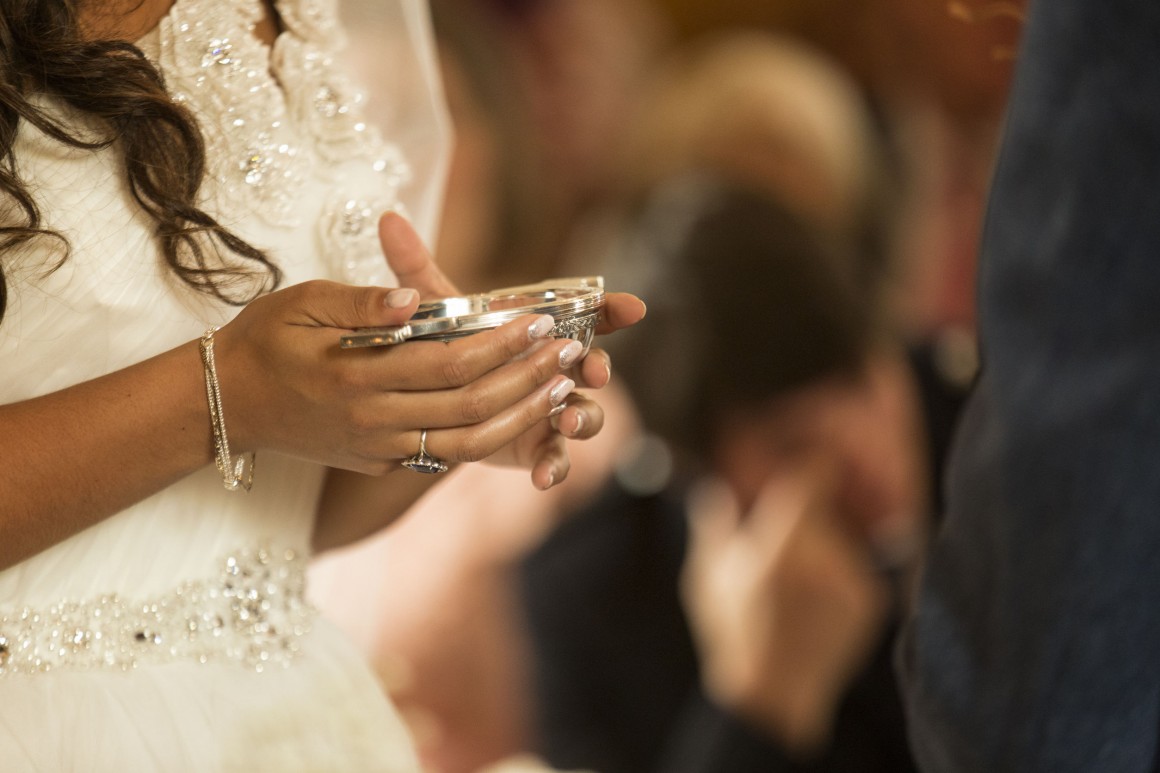In an era when the majority of couples have lived together before getting married, not to mention those remarrying and bringing together two households, the traditional wedding list is definitely on the wane. Guests nowadays are more likely to be faced with unusual gift lists – comprised of anything from gift vouchers to charity donations or even cash contributions towards a dream honeymoon in Borneo – rather than a traditional list composed of dining sets and crystalware. For guests who want to buy a more meaningful gift, these lists can be a challenge. If you’re in this position, maybe it’s time to consider something steeped in tradition, an item that a modern couple wouldn’t necessarily think of, but will be able to cherish for years to come.
A simple online search for traditional wedding gifts will suggest an unusual option – the wedding cup. Wedding cups can be given at a bridal shower or as a wedding present and are a lovely, unusual gift option. They can also be an integral part of the ceremony itself – traditionally, the newly married couple both drink from the cup at the same time, sharing their first drink together and symbolizing the coming together of two families. Popular in silver as well as pewter, they can also be engraved to commemorate the special day, providing a lifelong memory for the happy couple. So where does this tradition come from? The wedding cup actually has a surprising history, steeped in legend from German, Scottish, French and Jewish cultures.
The Nuernberg bridal cup
Bridal cups – or loving cups – are part of a centuries-old German wedding tradition that can trace its origins back to 15th-century Nuremberg in Germany. According to legend, a wealthy nobleman disapproved of his daughter’s choice of a husband, a goldsmith. The father had the goldsmith sent to a dungeon, but rather than ending his daughter’s love for the goldsmith, the girl fell gravely ill. Finally, in desperation, her father agreed to a test for her beloved. If the goldsmith could make a chalice that two people could drink from at the same time without spilling a drop, the pair could wed. The goldsmith created a chalice with two cups, known as the swiveling cup, and they were permitted to marry, establishing a romantic and memorable tradition as charming today as it was hundreds of years ago.
The Scottish Quaich
The Scottish Quaich is a two-handled bowl that has been used for centuries to offer a welcoming drink at clan gatherings and special occasions. Originally carved from wood, they are now popular in silver as well as pewter. During a wedding, the Quaich is topped up with whiskey, usually by the bride, and then passed around for the wedding party to sip once the legal proceedings have been concluded.
La Coupe de Mariage
In France, during the reception, it is custom for the couple to use a toasting cup called a “Coupe de Mariage”. Historically, a small piece of toast was dropped into the couple’s wine, the couple would then lift their glass to ‘raise a toast’, thereby ensuring a healthy life. Interestingly, this is the origin of the term ‘would you like to raise a toast?’ that is one of the most common customs seen in weddings today.
Jewish Kiddush cup
The Kiddush cup is a beautifully decorated wine vessel, used for the Sheva Brachot, or seven blessings during a wedding ceremony. As the bride and groom sip from the Kiddush wedding cup, they receive the first benediction, sanctifying the joy and abundance of the Jewish marriage. Kiddush cups can be made from a variety of materials, including sterling silver, pewter, and fine china, but all will feature an elaborate design and can be engraved with a family emblem, prayer or personalized for the wedding day.
Whatever tradition is being observed at the wedding – whether it’s a religious or secular service, in a church or on the beach, the wedding cup is definitely something that could delight and surprise a couple on their wedding day. It can also become a cherished heirloom that can be passed down from one generation to the next, traditionally bringing happiness and good fortune to all who drink from it.


